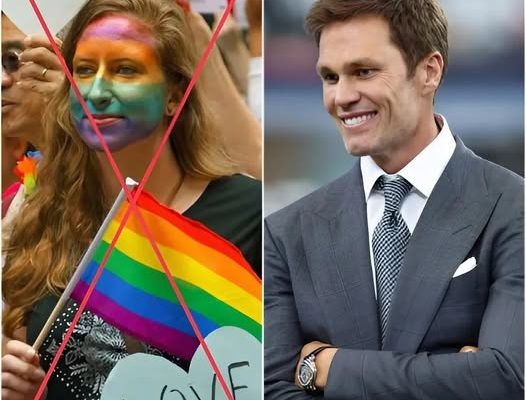In a move that has sent shockwaves through the world of sports and beyond, NFL legend Tom Brady has announced his refusal to celebrate Pride Month in June. Brady, widely regarded as one of the greatest quarterbacks of all time, made his announcement in a statement posted on social media, revealing that he will not be participating in Pride Month activities this year. His reasoning? The former New England Patriots and Tampa Bay Buccaneers star believes that “woke culture” has taken over movements like Pride Month, transforming them into something unrecognizable and politically driven. Brady’s comments
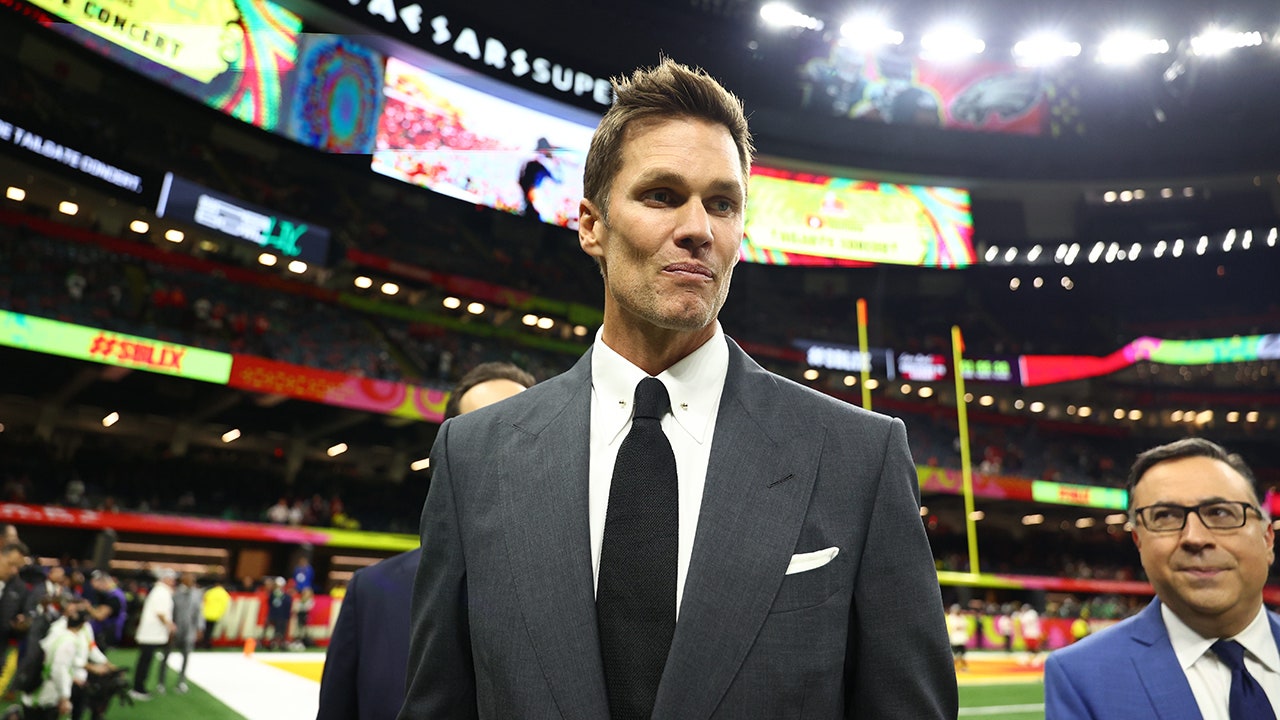
The Background: Pride Month and Its Growing Influence
Pride Month, which takes place every June, is a month-long celebration dedicated to honoring and uplifting the LGBTQ+ community. The month is not only about celebration but also about activism, visibility, and solidarity. Pride Month traces its roots to the Stonewall Riots of 1969, a critical moment in the LGBTQ+ rights movement, which ignited the modern push for equality and justice. Since then, Pride Month has become a global event, with parades, marches, and other forms of celebration taking place around the world, often accompanied by corporate sponsorships, social media campaigns, and educational initiatives.
For many, Pride Month is a time of reflection, celebration, and action. It’s a chance to highlight the progress made toward LGBTQ+ equality and the work that still needs to be done to address issues like discrimination, legal rights, and social acceptance. However, as the celebration has grown in visibility, so has the controversy surrounding it. With the increasing rise of “woke culture,” which advocates for social justice causes and progressive political movements, some argue that Pride Month — along with other social movements — has been politicized and commercialized, losing its original meaning.
Tom Brady’s recent comments about Pride Month have added fuel to this growing fire, as he has become one of the highest-profile public figures to openly reject participation in the celebration. His stance is rooted in a broader critique of what he perceives as the rise of “woke culture” — a movement that he believes has gone too far in dictating what is acceptable and forcing conformity.
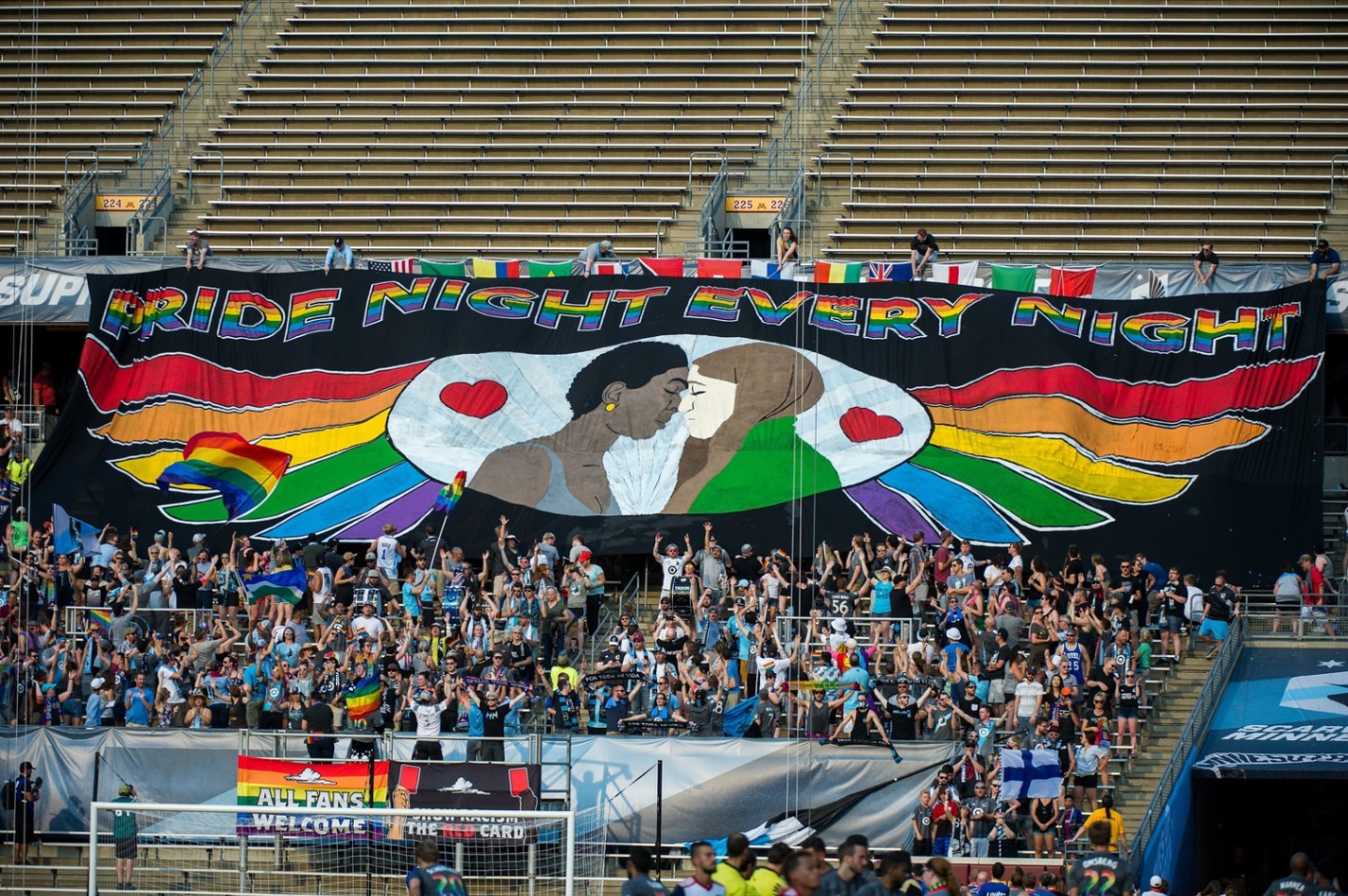
Tom Brady’s Statement: A Critique of “Woke Culture”
In his statement, Brady explained that he would not be celebrating Pride Month due to his concerns over the politicization and commercialization of movements like Pride. He expressed disappointment with the way “woke culture” has taken over social causes, making them about political correctness and forcing individuals and organizations to conform to a specific set of beliefs.
“I have always believed in equality and respect for all people, regardless of their gender, sexuality, or background,” Brady began. “But over the years, I’ve watched as Pride Month and many other social justice movements have become more about pleasing a particular group or following a certain agenda than about genuine progress and inclusion. It’s no longer about equality for all — it’s about aligning with a specific political narrative.”
Brady continued by explaining that while he believes in treating others with respect, he feels that the current wave of activism surrounding Pride Month has become too driven by “woke culture,” which he argues stifles free expression and creates divisions among people.
“True progress isn’t about being told what to think or what to believe. It’s about fostering an environment where people can have open conversations, share diverse perspectives, and come together for the greater good,” Brady said. “Unfortunately, what I see happening with Pride Month today is a movement that’s been hijacked by politics, and it’s become a demand for conformity rather than an opportunity for true celebration and acceptance.”
The Backlash: LGBTQ+ Advocates and Fans Respond
Brady’s decision to publicly reject Pride Month has sparked widespread backlash, particularly from LGBTQ+ advocates and many of his fans who are disappointed by his comments. Critics argue that Brady, as one of the most influential athletes in the world, has a responsibility to support LGBTQ+ rights and stand with the community, especially during a time when visibility and inclusivity are more important than ever.
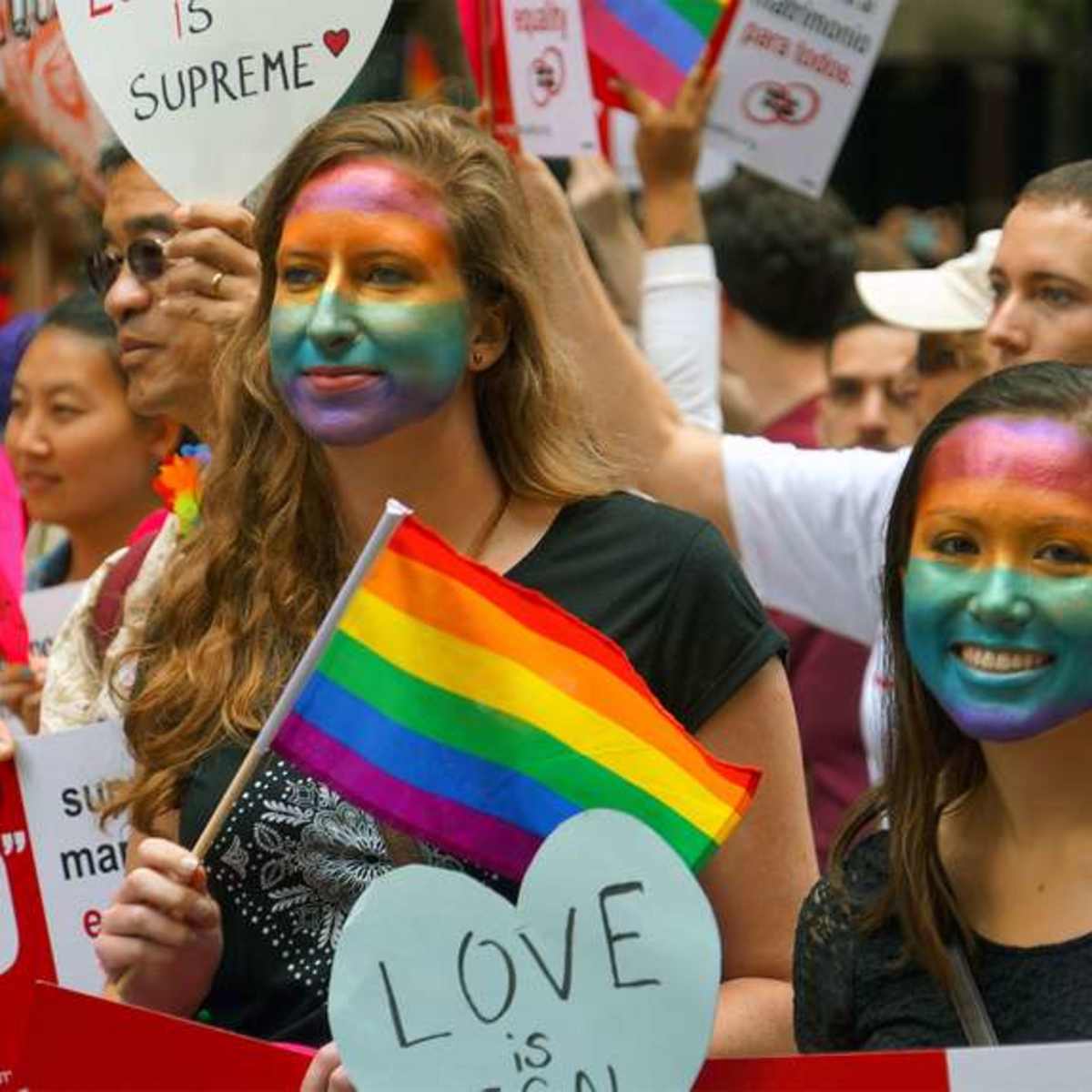
“Tom Brady’s comments are not only disappointing but harmful to the LGBTQ+ community,” said one LGBTQ+ activist. “Pride Month is about more than just celebrating love — it’s about fighting for equality and making sure that LGBTQ+ individuals are seen, heard, and respected. When someone like Brady, who is admired by so many, chooses to reject this message, it sends a very negative signal.”
The LGBTQ+ community has long struggled for equality, with many individuals facing discrimination, harassment, and legal challenges simply because of their sexual orientation or gender identity. For many, Pride Month is an important moment to reflect on the progress made in LGBTQ+ rights and to amplify the voices of those still fighting for equal treatment. To see a public figure of Brady’s stature reject this celebration has left many feeling disheartened and frustrated.
“For someone like Tom Brady, who has always been seen as a leader, to not take part in Pride Month is heartbreaking,” said one Twitter user. “It’s a missed opportunity to use his platform to support the community that still faces so many challenges. Pride isn’t just a political movement; it’s a human rights issue.”
Supporters of Brady’s Stance: A Defense of Free Expression
While the backlash has been strong, Brady has also found support from individuals who share his critique of “woke culture” and the increasing pressure to conform to social movements. These supporters argue that Brady’s decision is a matter of personal freedom and that individuals should not be compelled to participate in movements or celebrations that do not align with their personal beliefs.
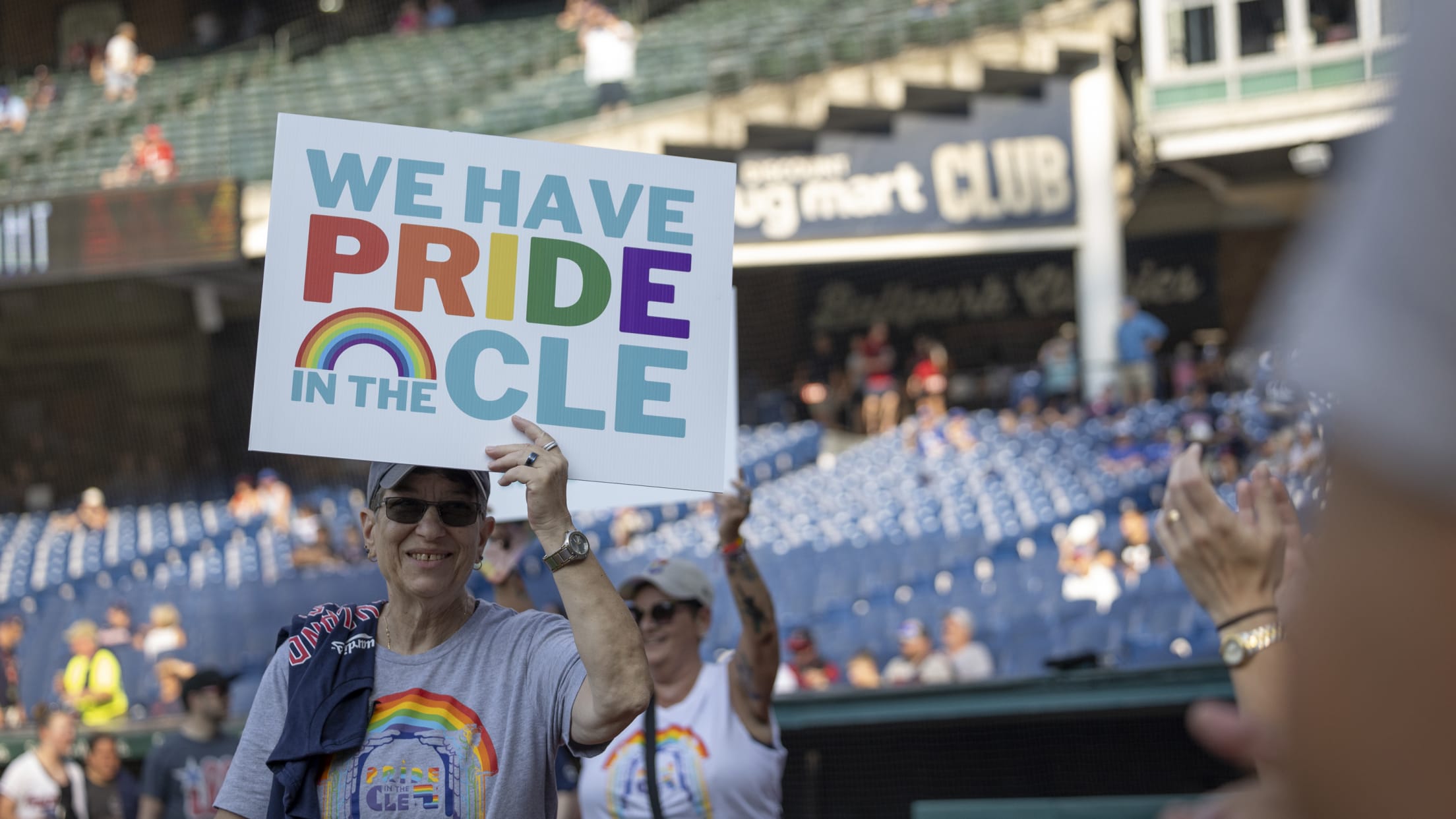
“I totally respect Brady’s position,” one supporter commented. “He’s not against the LGBTQ+ community, he’s just saying that people should be free to make their own decisions without being forced to follow a certain agenda. Everyone should be allowed to express their opinions without being labeled as intolerant or discriminatory.”
Supporters of Brady’s position also emphasize that the commercialization of Pride Month, with its rainbow-colored products and corporate sponsorships, has diluted the true spirit of the movement. They believe that Pride Month should be about real support for LGBTQ+ individuals, not about virtue signaling or marketing.
“The commercialization of Pride is a big problem,” said another supporter. “Companies throw out rainbow logos and call it a day, but do they really care about the issues? Brady is right to question whether this has become more about politics than genuine inclusion and equality.”
The Larger Debate: The Rise of “Woke Culture” and Its Impact on Activism
Brady’s comments have sparked a wider debate about the role of “woke culture” in modern activism. While many view “woke” movements as essential to pushing for social change and raising awareness about issues like racism, gender inequality, and LGBTQ+ rights, others, like Brady, argue that this culture has become too politically driven and divisive.
Critics of woke culture often claim that it promotes an environment of cancel culture, where people are forced to conform to a specific ideological framework or face backlash. For Brady, the rejection of Pride Month seems to be a critique of what he sees as a trend of ideological conformity, where differing opinions are not welcomed and dissent is often punished.
“We live in a time where people are expected to adopt the same views on every issue, and if they don’t, they’re labeled as intolerant or hateful,” Brady said in his statement. “But the true spirit of equality is about respecting differences and creating space for open dialogue, not forcing everyone to fall in line.”
This debate raises important questions about the future of social movements and whether activism can remain inclusive and open to diverse viewpoints while still advocating for justice and equality. Can movements like Pride Month continue to serve their original purpose of advocating for marginalized communities while also allowing space for individuals with different beliefs?

The Role of Celebrities in Social Movements
Brady’s decision to step away from Pride Month also highlights the ongoing tension between personal belief and public expectation. Celebrities, especially those with large followings, are often expected to take public stances on social issues, whether it’s supporting racial equality, gender rights, or LGBTQ+ causes. But as Brady’s case demonstrates, not all celebrities feel comfortable using their platform to advocate for every social cause.
While some argue that public figures should be using their influence to support social movements, others, like Brady, believe that people should be free to make personal choices without facing intense public pressure. In a world where opinions are increasingly polarized, Brady’s stance underscores the complexities of navigating social movements and public expectations.
The Future of Pride Month and Social Justice Movements
As Pride Month 2023 unfolds, Brady’s comments will likely continue to spark conversations about the future of social justice movements and their relationship with “woke culture.” Whether or not his stance will encourage others to question the current trajectory of Pride Month and social activism remains to be seen, but it has certainly brought the topic of ideological conformity and the commercialization of movements into the spotlight.
What is clear is that the conversation surrounding Pride Month and social justice causes is far from over. As society grapples with how best to achieve inclusivity and equality while respecting diverse opinions, the future of these movements will depend on how they evolve in response to the criticisms of those, like Brady, who believe that they have been hijacked by political correctness.
In the end, Tom Brady’s decision to reject Pride Month raises important questions about the intersection of personal beliefs, public activism, and the commercialization of social causes. While many will continue to celebrate Pride Month as a vital symbol of equality and inclusion, others, like Brady, will continue to question whether these movements have stayed true to their original purpose or whether they have become platforms for conformity and political agendas.
